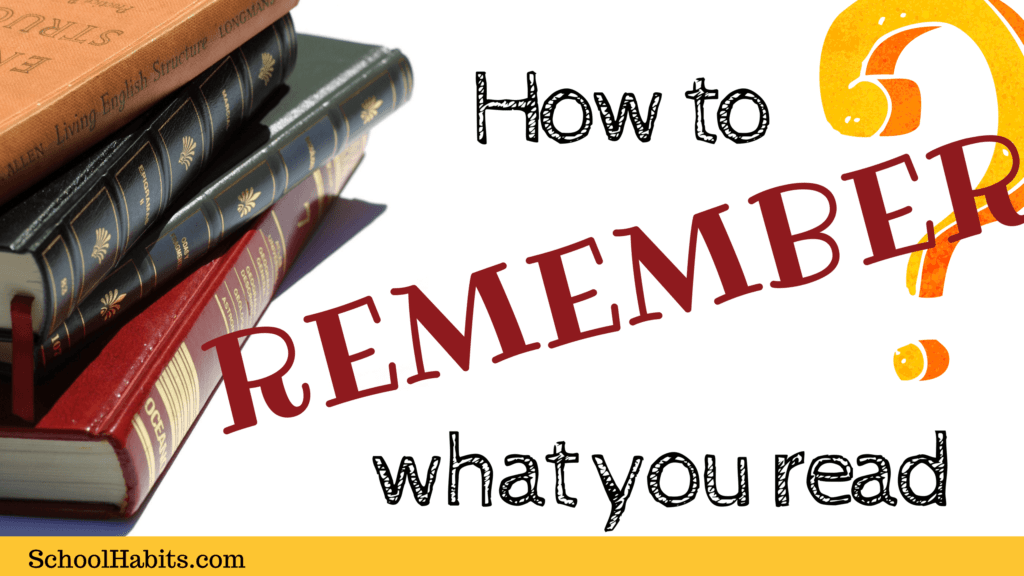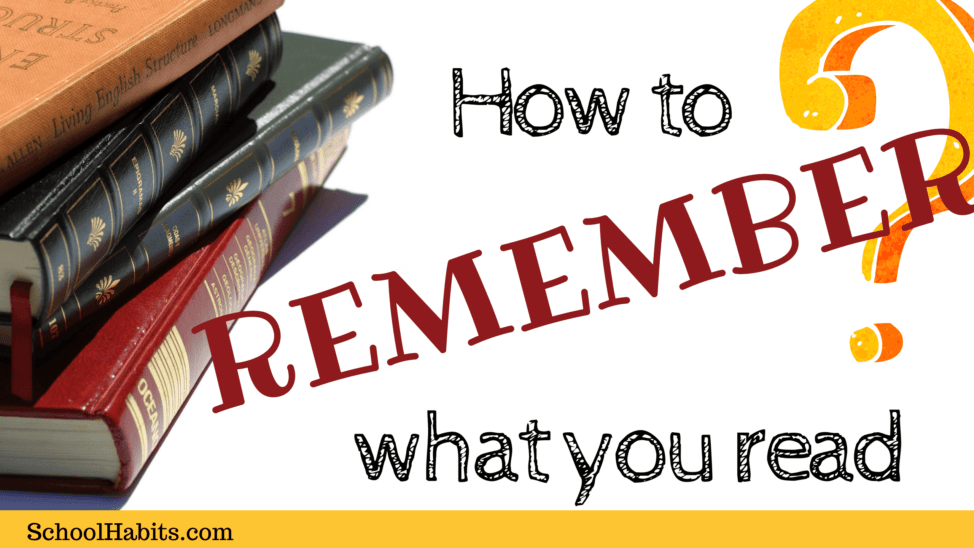
I have a confession. Sometimes I read something — either a single page in a book, an article online, or even a whole chapter — and I realize afterwards that I have no idea what I just read. I hate when this happens. I teach reading! I should know how to remember a book I read! This shouldn’t happen to ME!
Ha. But it does. And I’m betting that it happens to you, too.
Sure — sometimes it doesn’t matter if we forget what we’re reading. Sometimes we are just reading for heck of it … because it’s in front of us … because we are waiting in line somewhere skimming through some ridiculously shallow but awesome magazine.
But then sometimes it DOES matter — like, when your teacher assigns you 5 chapters to read for homework and you can’t remember what happened just one day later. Ugh, right?
So there’s a simple hack for this issue. There is something really small but super effective for how to remember a book you read.
And before I give it to you, let me first say that I could give you a list of scientifically proven reading comprehension strategies (some of which are outlined here, here, and here) that will help you retain and recall this information … but that might bore you to death. I could go all teacher-mode on you and tell you to pre-read, predict, connect, associate, question, reflect … yada yada yada … have I lost you yet?
So yeah, I’m not going to go all teacher-ly on you in this post. (You’re welcome.) Instead, I’m suggesting you do just one thing to help you remember what you read.
How to remember a book you read
Keep chapter summary notes.
Yes, it really is that simple. You could go nuts with full out annotations (by all means, please do!). But if you’re just not having that for whatever reason, the absolute least you should do is keep chapter summary notes.
Here’s how it works. After you read a chapter in your book, write down a concise and simple summary of what you just read. You can use bullet points, full sentences, incomplete sentences, whatever you want — just include some words about the main idea and any key plot details you think are important. If you’re doing bullet points, we’re only talking like 3-4 bullets. Nothing deep. Nothing fancy. Nothing Shakespearean.
When you’re done with the book, you’ll have yourself a perfect set of chapter summaries to refer to whenever you need it. So convenient!
Here are some other tips for keeping chapter summary notes
1. You can write your notes on a sticky note and slap it on the chapter title page when you’re done.
2. You can keep your chapter summary notes on a separate sheet of paper. You can even make a simple template in google docs for this very purpose, and then print it out whenever you need more copies.
3. You could write your summaries on sticky notes as you read, and then when you’re all done with the book, transfer the notes onto a separate sheet of paper. Doing it this way double-whammies as studying and review too. Awesome.
4. Write each chapter summary right after you read the chapter. Do not go on to the next chapter before writing your chapter summary for the one you just read.
And… the most important tip for how to remember a book you read …
Write the chapter summaries in YOUR OWN LANGUAGE. Yeah, I know you can go online and find beautifully crafted chapter summaries of any book ever. (SparkNotes, I’m staring at you.)
But copying these pre-fab chapter summaries is a total waste of time. First of all, we remember information way better when it’s in our own words — the language of the stuff you’ll find online is not the way you talk. So write your summaries using language that feels natural to you.
Second, copying the summaries from someplace online involves no thinking whatsoever. And one key reason why doing this entire annotation thing works so well is that you’re forcing yourself to think about what you just read, after you read it. It’s THIS thinking and THIS reflection that helps you remember the book for longer. Of course, the act of writing down these thoughts in the form of brief summaries is part of the deal too. BOTH steps are important: thinking back about the chapter, and then writing it down.
So now you know how to remember a book you read. Seriously, give this hack a try. I argue that it’s one of the best ways keep yourself from forgetting it all a day later.
And don’t forget these 4 factors that affect how much you “get” what you’re reading. They have nothing to do with reading, but everything to do with reading.

